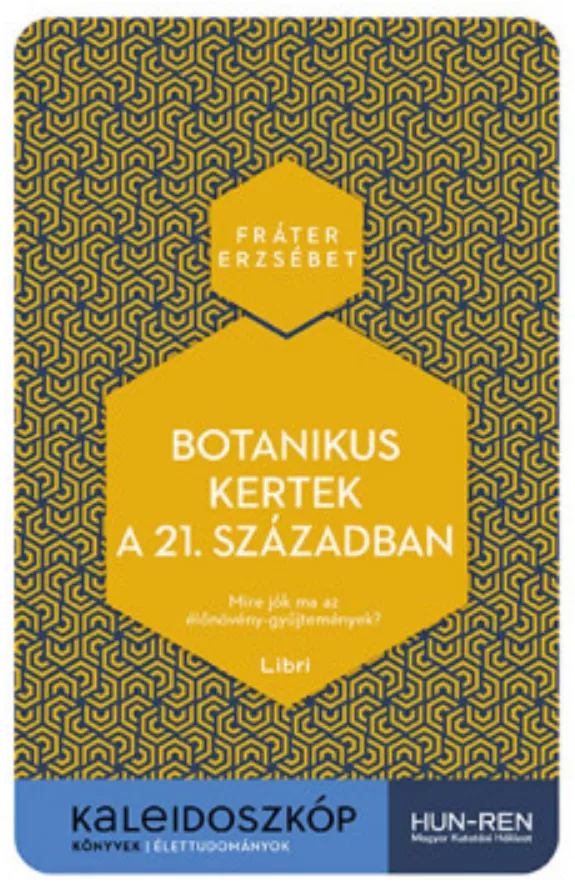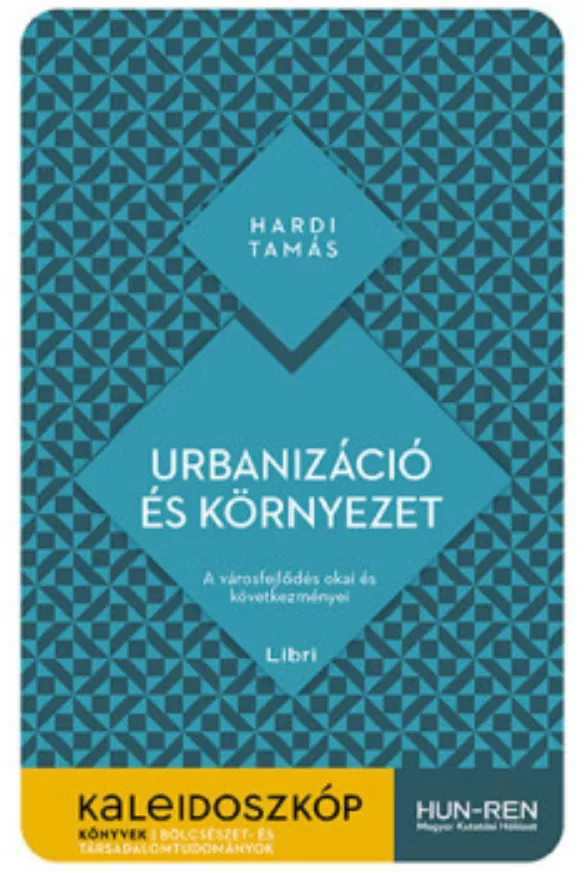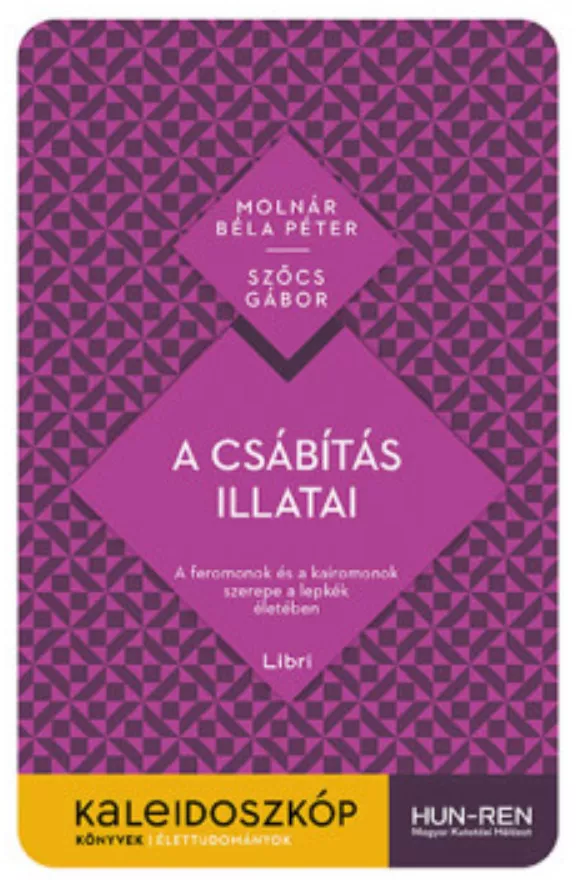
In collaboration between the Hungarian Research Network (HUN-REN), Libri Publishing, and the Hungarian Culture Foundation, the scientific popular science pocketbook series titled ’Kaleidoscope Books’ launched in 2022, has four new volumes now available in Libri bookstores and on the libri.hu webshop. Written by HUN-REN researchers, these works present the latest and most exciting results of Hungarian research in reader-friendly format for the science-interested public.
The new volumes of the Kaleidoscope Books pocketbook series are:
Erzsébet Fráter: Botanical Gardens in the 21st century – What are the functions of living plant collections today?

In today's world, when a large part of the population spends their weekdays in urban, built environments, an increasing number of people visit botanical gardens in their leisure time. However, what is the purpose of living plant collections beyond mere enjoyment?
Erzsébet Fráter's book presents the diverse functions that botanical gardens fulfil today. These unique "living museums" are not only places for meaningful relaxation but also important scientific workshops that play a significant role in preserving our natural treasures and shaping environmental awareness. The book provides an exciting insight into the millennia-long history of these gardens, allowing us to learn how Hungary's most significant botanical gardens developed through the dedicated work of scientists, gardeners, and patrons.
Erzsébet Fráter is a biologist, scientific collection curator. She worked at the Hungarian Natural History Museum, and since 1998, she has been a fellow at the National Botanical Garden of the HUN-REN Centre for Ecological Research. Her educational articles and books have been published regularly since 1985.
Tamás Hardi: Urbanization and environment – Causes and consequences of urban development

The majority of the world's population lives in cities, and the number of urban residents continues to grow. These areas are considered the hubs of human consumption, thus, their growth significantly contributes to environmental pollution, one of today's major global challenges.
Due to the importance of the issue, the book focuses on the relationship between the city and its natural environment. What impact does urban living have on the ecosystem? How does it change the urban climate, water cycle, soil, biodiversity, and land use? How can we further develop our cities in a more sustainable way, meeting the expectations of the 21st century? How can we meet the needs of a growing population while creating a liveable environment that can also serve future generations? The book provides answers to these questions, which concern all of us.
Tamás Hardi, PhD, is a senior research fellow at the HUN-REN Centre for Economic and Regional Studies and a professor at Széchenyi István University. He teaches urban ecology and environmental economics. His main research area is the development and environmental transformation of cities in Central and Southeastern Europe.
Béla Péter Molnár ‒ Gábor Szőcs: Scents of seduction ‒ The role of pheromones and kairomones in the lives of butterflies

Who would think that the colourful butterflies conceal so many secrets? One of the greatest among these is related to their sense of smell. Certain scents, imperceptible to us, serve as a compass for them, allowing them to find their mate and host plant. Their antennae react more sensitively to these scent molecules, especially pheromones, than a modern instrument.
The book introduces the reader to this secret. It contains information about the discovery and identification of sex pheromones, the secrets of pheromone research, and the agricultural use of pheromone traps.
Béla Péter Molnár is a horticultural engineer and chemical ecologist. He studies volatile compounds that play a role in the mate and host plant selection of pest butterfly, gall midge, and fruit fly species.
Gábor Szőcs is a biologist, Doctor of the Hungarian Academy of Sciences. He specializes in insect pheromones, and his research results are applied in environmentally friendly plant protection.
Both of them work at the Department of Chemical Ecology at the Plant Protection Institute of the HUN-REN Centre for Agricultural Research.
László Szabados: Extremophile plants – Plant life in extreme conditions

Plants have adapted to various climates and habitats over millions of years of their evolutionary history. There is virtually no land area on our planet that isn't covered by vegetation. Even in the most barren regions, we can find species specially adapted to the given conditions. For such species, those circumstances that might be harsh for other plants are tolerable or even favourable. However, what could be the secret of these so-called extremophile species? What traits and adaptability are required for them to survive, flourish, and produce seeds in habitats that would be unbearable for other plant species?
The research into extremophile plants also holds the promise that, through the application of acquired information, we will be able to increase the resistance of valuable crops.
László Szabados is a biologist, Doctor of the Hungarian Academy of Sciences, scientific advisor and group leader at the Institute of Plant Biology of the HUN-REN Biological Research Centre, Szeged. His primary research areas are the genetic and signal transduction processes that regulate the resistance of higher-order plants to drought and salt stress.